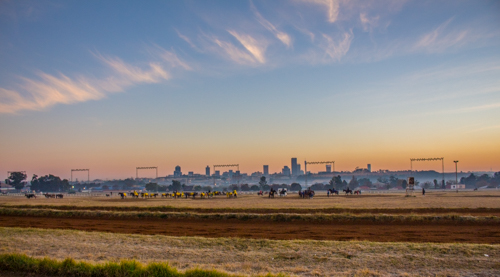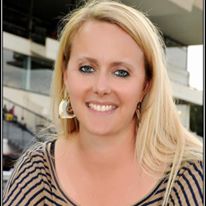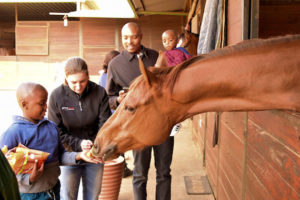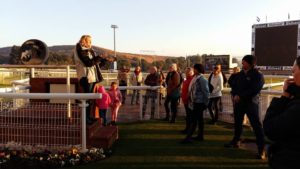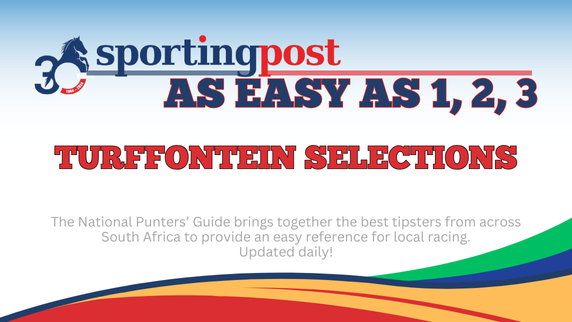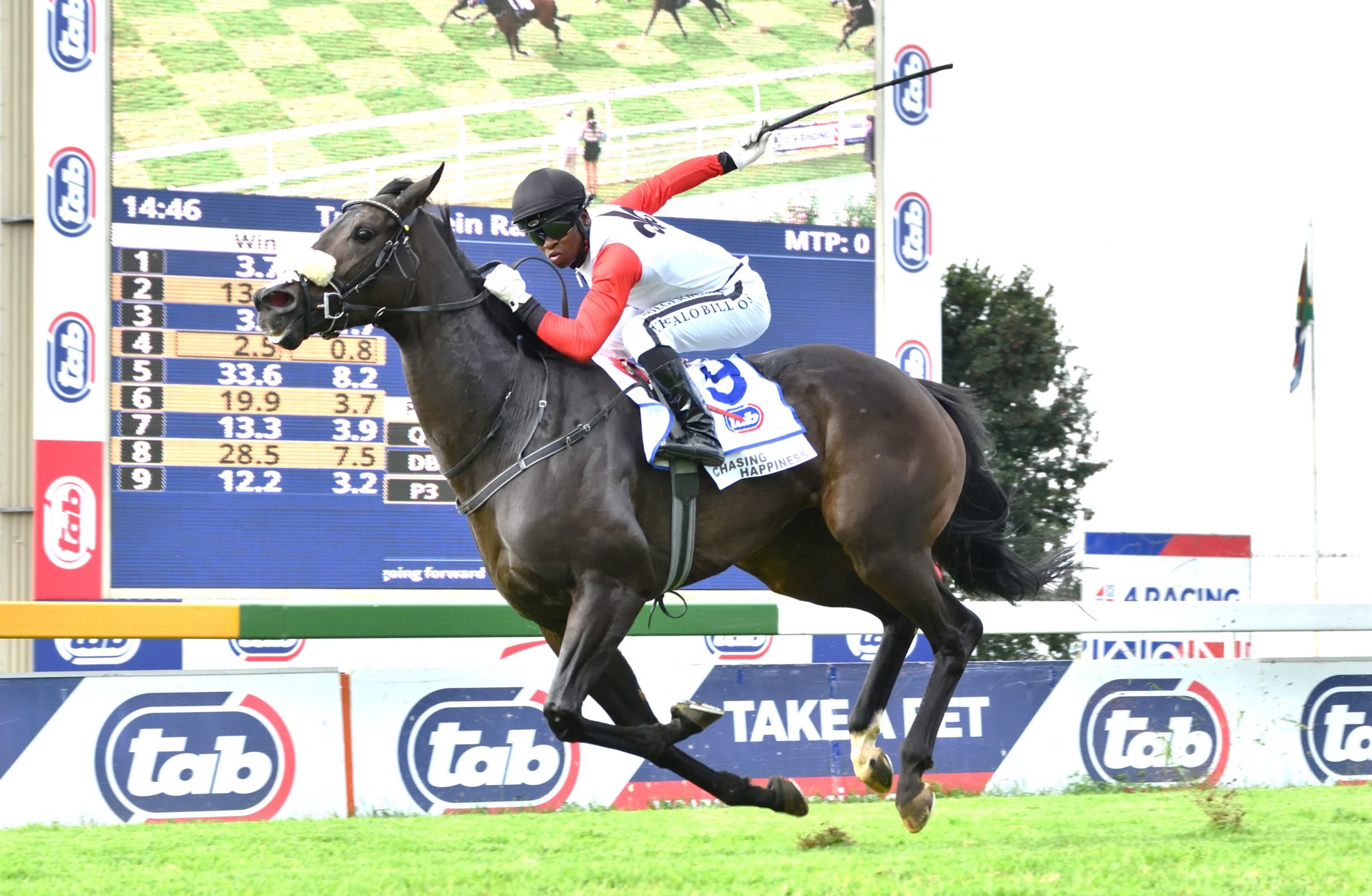It’s amazing how the simplest ideas are often the best. The Secret Sunrise initiative, described as “the latest urban craze to leap from social media into reality” sees urbanites across the country, getting up before dawn and congregating at ‘secret’ locations to stretch and dance and commune as the sun comes up. I loved the description by one of the participants that “As adults, we sometimes forget … that we really need to play.”
Ashleigh Hughes, long-time assistant to Gary Alexander Racing, who also has stints with Weiho Marwing and Snaith Racing under her belt and is currently Assistant to John Vos Racing, saw a Carte Blanche insert on it late last year and by her own admission was skeptical, “In the beginning my response was probably a bit sarcastic and along the lines of ‘big deal, we also have secret sunrises and we see it every day’. But on reflection, she realised the idea had merit. “The stuff us racing people see every day is once in a lifetime stuff for other people, so I thought I would share,” and she scheduled her own session at Turffontein on 18 June 2016.
It was such a runaway success that she held a second one on 8 October and is already planning follow-ups as everyone seems to want to come again. Ashleigh explains, “I changed the name to ‘Sunrise Sessions’ because I’m not associated with the ‘Secret Sunrise’ group and didn’t want to step on someone else’s project, but they have been very supportive of my initiative and have even retweeted it and shared it on Facebook.”
Power of the media
As there is regular debate about how to get outsiders interested in racing, I was curious to find out how Ashleigh had put it together. “I organised the first one on Facebook via my Love Racing page and issued an open invitation to non racing friends to come and spend a morning seeing what I do.” Over 70 people turned up. “It was just before the really heavy winter started and everyone was in scarves and mittens etc. I think it was only just bearable for everyone, but I think the cold and all the steamy breath helped add a bit of magic. It was a completely mixed bunch – many had zero horse racing exposure, or horse experience of any kind. There were groups from livery yards who wanted to see how we do things in a racing yard, some even brought their grooms along who loved chatting to our guys and were amazed to see what they do and how different it is – that was lovely to see. We even had a party of ladies from the Magaliesburg area, who hired a bus to bring them halfway across the province.” The youngest guests were two 6yo girls, who kept Ashleigh on her toes with a long list of questions.
“This last one was a little experiment for me. I write for an equestrian interest magazine called Equilife, which caters mainly to the competitive riding community. Racing is not always that well regarded in those circles, so it was an experiment for me to see how many people were reading my articles. In the September edition, I wrote about our first session and invited people to attend the October one, but specifically said that all bookings must be done through my Love Racing page, so all the applications came via the magazine article and I got a huge response and ended up having to turn people away.”
“After last time, I limited numbers to 20 this time round, simply because the group is a lot more mobile and less intimidating for the horses on the track. Last time we did coffee and muffins at the yard, but it was a lot of work trying to coordinate refreshments as well, so this time I made a block booking on the deck at Turffontein which worked really well and gave them some business too. It’s overlooking the tracks, so we could still see everything and I didn’t have the responsibility of refreshments, toilets etc and it worked a lot better. Plus it gave me a captive audience and allowed me to explain a lot of things that is harder to do out on the track.”
How it works
I asked her to walk me through a typical session. “We meet in the car park next to the NHA building at 6am and start off with a debrief on safety (horses have right of way, respect trainers, don’t step on toes or upset anyone). Then we walk across the tracks and I show them and explain the differences between the inside track, the outside track and how it’s all prepared. It’s also nice for people to actually feel the race course. Then we basically stand there and just watch the horses for about 45 minutes. I deliberately choose a Saturday as that’s when fast work is done and it’s a bit more exciting to watch. We are able to get right up close to the horses, so I can explain what paces they are doing and explain a bit of the basic training programme most trainers use. That’s usually when we have quite a bit of Q&A! I also tell them about the work riders programme, bits and bitting and how horses are prepared for racing and that generally takes us to the end of first string. Once everyone’s horses have gone back in, we walk back across the tracks to the parade ring, which everyone enjoys as it’s not an area they are allowed in on normal race days and there are always lots of photos taken in the winners’ box. People usually have a lot of questions about where they are and aren’t allowed on race days, so it’s a good opportunity to point out all the different restaurants and explain that we cater for all pockets, dress codes, etc.”
“Most Saturdays the jockey room opens early, so we do a quick tour through and I show them the weighing room and explain a little about that and then we go to the restaurant in the grandstand for some more Q&A over brekkie – although I rarely get to eat as I’m always talking!”
Motivation
“After that everyone comes to my yard, where they get to feed the horses carrots and have a free rein to interact with the horses and we give them a run down on the stable management side of things – feeding, shoeing, how many horses to a groom and so on. I think the magic really comes when people realise these racehorses are actually sweet and cuddly and love attention. That seems to be the biggest surprise. Kids love it and it’s lovely to see how the horses respond. I think if you can get kids at the sort of age where you can make an impression, give them a good experience and start on a good footing, it will stand us in good stead as an industry. We all know racing has its bad side, but I don’t think we get to share the good side enough. It might not translate into immediate results, but if they come into contact with racing again later in life, hopefully they will remember that first positive impression.”
“That’s my main motivation – to share the good side of racing. Whether we care to admit it or not, racing is perceived very poorly. Even knowledgeable non-racing folk regard racing as being abusive, cruel and exploitative, so I love taking them onto the tracks where they can see all the horses – not just my string – and see that the horses are not being beaten or forced and that it’s something horses love to do. Because they get to see them so close up and get to interact with the horses directly, one doesn’t even need to tell them that – they can see it for themselves. And that’s really the mission – to change people’s perception of racing.”
Feedback
“Every person who has come has left better informed and more knowledgeable about horse racing. I’ve had a lot of feedback via social media and it’s all been positive. People are enthralled with the whole idea and say the experience is not what they were expecting. All admit to arriving with reservations and thinking ‘what can she show us that we don’t know?’, but even really hard cases left saying ‘you’ve completely changed the way we look at horse racing.’ And we’ve had a real mix of horse people, non-horse people and people with no racing experience – it wasn’t just horse riders wanting to experience racing, which was quite interesting. The first time I was challenging non racing friends to come and have a look, but the second time was through Equilife and not all the people who read the magazine were horsey. Thabiso is one of the Equilife team and from the minute I published my September article, he told the editors he wanted to attend. He’d read all my previous articles and wanted to come and see it for himself.”
“I think the concept appeals to so many different age groups and demographics – riding, non riding, even just people wanting a different morning out. Racing folk are obviously very welcome, but I’m primarily trying to appeal to non-racing folks and people who haven’t been exposed to racing before. There’s quite a lot of walking involved, so anyone that attends needs to be able to walk with ease and I usually advise people to bring a thick jacket, closed shoes, carrots and a camera.”
“I’m hoping somewhere along the line, we could get some people in other centres to do something similar. There are so many possibilities – sales for example are an area where Joe Public is generally neglected – but there are lots of possibilities.”
Regular fixture
“As it’s been so popular, I’ll try and do it regularly now. Because of demand, we’ll do another one next month and have provisionally set aside 12 November. Everyone is away in December, so we’ll maybe look at doing another one in January or February and then try and do one every 2 months after that.” Any interested parties can contact Ashleigh via email on [email protected].
While it’s a lovely concept, the acid test is whether there’s any follow-up or come back from her visitors. “My last bunch all want to come back again, but this time they want to come racing, so we’ll meet up on Charity Mile day at Turffontein. They all keep hassling me to make sure I’ve not forgotten!” Can it make a difference in the long term? Who knows. We’ve seen a lot of initiatives come and go, but as the old expression says, people who are crazy enough to think they can change the world are usually the ones who do.


